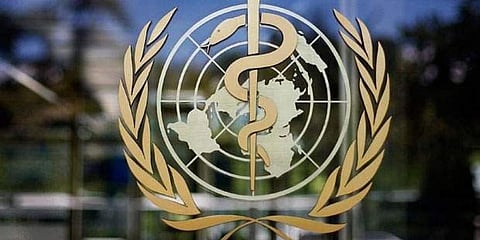

NEW DELHI: The WHO has urged member countries in its South-East Asia Region to increase investments to strengthen primary health care as the foundation for universal health coverage and health security, noting that PHC plays a crucial role in enabling better preparedness and response to pandemics.
We have seen that countries with strong primary health care (PHC) systems were able to respond better and faster to the COVID-19 pandemic, while also maintaining essential services with minimal disruption, said Dr Poonam Khetrapal Singh, Regional Director, WHO South-East Asia Region, at a high-level meeting, according to a statement.
The Regional Director was speaking at a high-level virtual meeting that included the health ministers from member countries to commemorate UHC (Universal Health Coverage) Day and launch the South-East Regional Strategy for PHC, the WHO statement said.
At the meeting, ministers emphasized the importance of the PHC approach to achieve UHC and health system resilience.
The Ministers of Health pointed to both the timeliness and value of the Regional PHC Strategy to help drive necessary PHC-oriented transformation across the Region.
The Regional strategy builds upon examples from practically every country in the Region on efforts to strengthen PHC and identifies a set of 12 interdependent strategic actions to enable countries to strengthen policy, implementation, monitoring and learning for PHC, the statement said.
"PHC is the key that unlocks UHC, through simultaneously addressing concerns related to equity and efficiency.
We need a paradigm shift to ensure that primary health care is provided throughout the life course with a focus on prevention and well-being that is organized around the comprehensive needs and expectations of the people and communities," the WHO Regional Director said.
Ensuring communities and individuals receive health services they need without financial hardship as part of universal health coverage is a priority flagship of the Region.
WHO South-East Asia Region has approximately a quarter of the World's population and disproportionately higher share of poor, the statement said.
The incidence of catastrophic spending, when households are forced to spend more than 10 per cent of household income for health expenses is on the rise.
The Region also faces other health-related challenges-, including growing burden of chronic disease, persistence of communicable diseases, increasing threats related to climate change, and effect from ongoing pandemic, the statement said.
Strengthened PHC systems across the Region can serve to drive progress in these areas, while also ensuring that the needs of the poor and excluded are prioritized, it noted.
The WHO said PHC also plays a crucial role in addressing people's health needs, reduces cost of care, enhances equity, and enables better preparedness and responses to pandemics.
While health service coverage in the Region has improved to 61 per cent from 49 per cent a decade ago, the COVID-19 pandemic slowed down progress, underscoring the need to prioritize investments for robust primary health care, it said.
"One of the key lessons of the COVID-19 pandemic is that the best defense against disease outbreak & other health emergencies is resilient primary health care as the foundation of universal health coverage.
Many of the countries that have responded most effectively to COVID-19 are those that had invested adequately in PHC," the statement quoted WHO Director-General Dr Tedros Adhanom Ghebreyesus as saying at the high-level meeting.